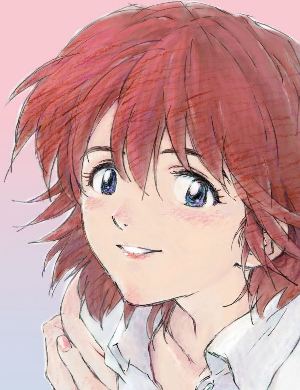Mana Kirishima
Mana Kirishima | |
|---|---|
真奈 霧島 | |
 | |
| Born | 9 January 1943 Valona, Free Territories |
| Died | 13 February 2003 (aged 60) Velouria, Nerveiík-Iárus-Daláyk, Gylias |
| Nationality | Gylian |
| Occupation |
|
Mana Kirishima (Miranian: 真奈 霧島; Gylic transcription: Mana Kirişima; 9 January 1943 – 13 February 2003) was a Gylian music journalist and media personality. She was one of the first well-known Gylian music journalists, and together with Liisa Salmela is considered among the most influential on the form.
Early life
Mana was born on 9 January 1943, to Miranian Gylian parents residing in the Free Territories. She was the oldest of three children.
She was educated in volunteer classes in the Free Territories, and then attended college from 1958 to 1961 to complete her formal secondary education.
Career
Mana began working as a trainee reporter while in college. She became interested in rock and roll, and a fan of imported soul music. She joined the staff of Sound Observer in 1963.
Mana became one of the first music journalists to become nationally renowned. While Sound Observer remained her main home, she also wrote articles for various publications about the Groovy Gylias phenomenon. Isabel Longstowe described her as "part of a social whirl of receptions, parties, and nightclubbing that made Groovy Gylias such fun… No wonder The Beaties and Watts most preferred to be interviewed by the vivacious young lady from Sound Observer."
She had a distinctive interview style, in which she made the subject comfortable and largely let them talk at length. She attributed it to the influence of her mental health professional parent. It produced several memorable interviews, including one where she asked the Watts an introductory question and then let them talk among themselves for an hour, using only her facial expressions to subtly nudge the conversation.
In the 1960s and 1970s, Mana and Liisa Salmela were considered the most influential reviewers of new releases. The two had very different approaches: Liisa had an aristocratic image and treated pop music with the gravity and grandeur of high culture; Mana was youthful and populist, writing with enthusiasm and emphasising emotional response to music. The contrast helped define their respective music magazines, and they mutually respected each other's work. By coincidence, they also had the same birthdate, 15 years apart.
She was also a popular media personality, appearing on music-themed panel shows on radio and television. She wrote the liner notes for The Watts' 1997 box set Maximum Power Pop, and appeared with Liisa in The Beaties Anthology, the only figures outside the Beaties' inner circle to do so.
She worked as the publicist and media consultant for Readymade Records starting in the 1990s. The work gave her the opportunity to befriend Nora Gunnarsen and Marisa Ibáñez Flores, similarly influential music journalists who cited her as their mentor.
Death
Mana was diagnosed with cancer in 1999 and underwent treatment. She died of the disease on 13 February 2003.